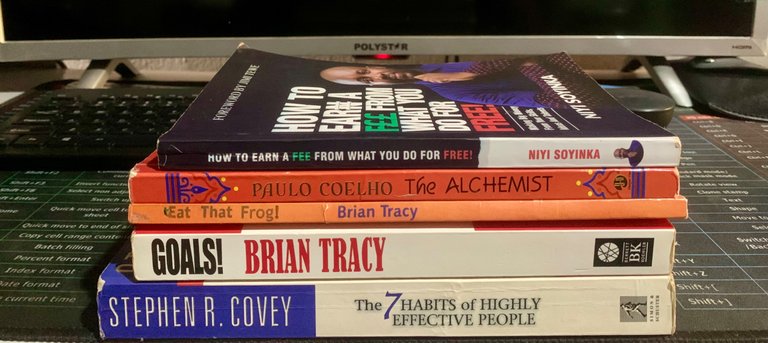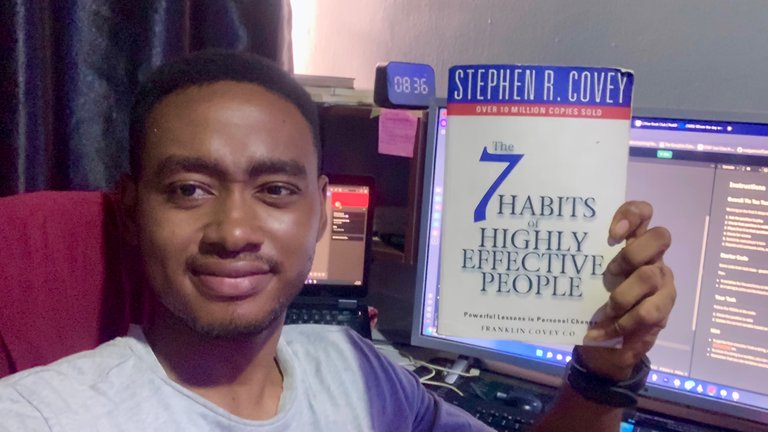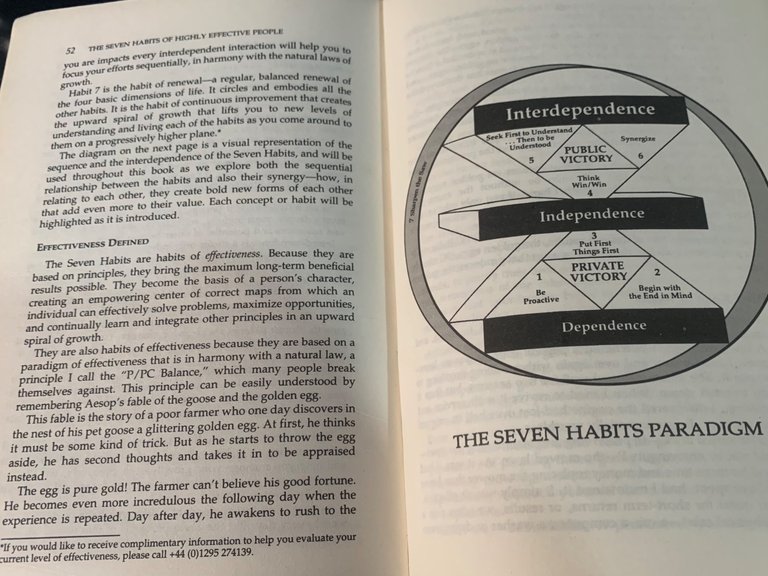The Power of P/PC Balance: Insights from The 7 Habits of Highly Effective People

Hello everyone! This is my first time publishing in this community. I am someone who is not much of a fan of reading books, but somehow I made it a goal to start reading this year, and I have been able to enjoy reading self-help and motivational books. I have read up to six books, and after each book, I have always thought of reviewing them, but I never got to because I didn't know how to begin. This time, I don't want to care how I begin, but to just begin.

I am presently reading The 7 Habits of Highly Effective People and will be talking about a particular session in this book which is "The Effectiveness Defined!"

The author, Stephen R. Covey, speaks of a natural law of effectiveness, which he refers to as a principle. The principle is called the P/PC balance. I was intrigued by the effectiveness of this principle and how it relates so much to what I read in "How to Win Friends and Influence People" by Dale Carnegie in Part One, where he says, "He Who Can Do This Has the Whole World with Him".
Before I explain how this passage relates to what I read in "HWFIP" by Dale Carnegie, I would first explain what Stephen meant by the P/PC balance.
Let's begin with the meaning of P/PC. The P means productivity, and the PC means productivity capacity. He says to have effectiveness in ourselves and others, our focus on what we expect, which is productivity, needs to balance with the productivity capacity, i.e., the capacity of the item or person bringing about productivity.
The author used different cases as an example to portray his point on this principle. I would not vividly describe the example he used, but I would explain my understanding of it by giving a similar example of mine.
Fist Scenario: Now, let's take a car, for example. You have a car, and you need it to take you to work every day in the morning and back home at night. The purpose of using the car is the productivity it serves, i.e., the P in the P/PC.
If you begin to use the car every single day without maintenance, before you know it, the car will disappoint at a time you would not expect. The condition of the car to remain at its peak productivity is the PC in the P/PC balance.
The lesson here is that efficiency cannot be derived if our focus is mainly on the result and less on the condition of what produces the result.
Second Scenario: Let's use a student as an example who seeks to prepare well for exams and have a good result. What he expects, which is good results, is the productivity he seeks, while his health is the productivity capacity. Many students out there give themselves less time to rest while preparing for exams. They focus on the productivity aspect alone while their health breaks down, which brings about a decrease in efficiency.
Third Scenario: This scenario now comes in terms of relating to others. If, as an employer or leader, you expect results (productivity) from someone beneath you, you cannot get the best result if your focus is mainly on the result rather than the state (capacity) of the person.
If you show interest in the people you have beneath you and know their state, their condition, and how they cope, you will get to know how they can bring better results (productivity) compared to if you bring about a strict system to force them to put in more effort.
You would get to influence them; they would get to like you and willingly do what you want for them because you showed empathy. Empathy is the word here.
This was how I could relate this point to what I read in "HWFIP" by Dale Carnegie.
In the chapter "He Who Can Do This Has the Whole World with Him", Dale talked about the importance of empathy and the ability to see things from the perspective of others. When we show empathy and genuinely connect with others by appreciating their concerns, we create a bond that fosters goodwill and cooperation.
I guess by now you understand the principle of the P/PC balance. It is so applicable and has made a shift in my paradigm. I now have a new way of seeing things, not just in terms of efficiency in the things I use but also in myself and my relationships with others.
Thank you for reading.
𝙰𝙱𝙾𝚄𝚃 𝚃𝙷𝙴 𝙰𝚄𝚃𝙷𝙾𝚁

Designed by @ grisvisa
Starstrings01, also known as Giftedhands, attends the Federal University of Agriculture in Abeokuta to study mechatronics engineering. He is a lover of the hive, a guitarist from Nigeria, and a student.
His ambition on Hive is to be more than just an ordinary blogger; he wants to be someone with a purpose. That's why he started the newbies initiative @newbies-hive to help guide and support newbies. Please follow the @newbies-hive curation trail by clicking here.
He tries to juggle education with being active on the chain, but his love and passion for Hive keep him on track..
All gifs included are powered by Tenor
Some posts you might be interested to read:
QUALITY ENGAGEMENT Vs. QUALITY CONTENTS Vs. GAINING VISIBILITY ON HIVE
BEING UNIQUE DOESN'T MAKE IT ORIGINAL || HIVE REWARDS ORIGINALITY